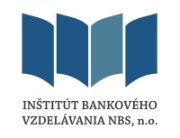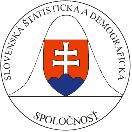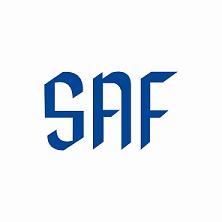NATO ENLARGEMENT: „A VIEW FROM THE ASPIRANT COUNTRIES“
Hearing of the Subcommittee on Europe of the House International Relations Committee
May, 1, 2002
Remarks by the Ambassador of the Slovak Republic Martin Butora
Mr. Chairman,
Distinguished members of the Committee,
Ladies and Gentlemen,
Dear Friends,
We have come here today to respond to questions about our aspirations to join NATO and our contributions to the Alliance. While my longer written statement provides an detailed overview of Slovakia’s accomplishments in political, economic, and military reforms, of our capacities to help NATO to meet its mission, as well as of our challenges in moving from a de facto ally to a real ally, let me dwell in my remarks on a broader context of this process.
Slovakia wants to join NATO because of her past, and perhaps even more, because of her future. We are convinced that Slovakia will be a better country as the member state of NATO, that NATO will be a better Alliance with Slovakia, and that the United States‘ interests will be better served with a stronger and bigger NATO that includes Slovakia.
We want to join NATO because we never want to repeat our past. Believe me, each family in Slovakia remembers the horrors of the 20th century, when Slovaks underwent two world wars and lived under two dictatorships. We have in our bones an experience of what it means to be attacked, to be occupied, and to be bombed. That is why we were so strongly with you after September 11, why thousands of rank and file Slovaks stood in their deep sorrow and prayers. And that is why our intelligence, our law enforcement institutions, and our military offered total and immediate cooperation in the fight against terrorism.
Mr. Chairman,
I am here to testify, to be asked, and to respond. Yet for the most of the 20th century, we were not asked about our opinion. Both foreign and domestic dictatorial regimes applied an entirely different approach. We were not asked when Hitler in September 1938 pushed for Munich Agreement, which led to the end of then Czecho-Slovakia. We were not asked when Nazis entered our territory to suppress the Slovak National Uprising, one of the largest revolts in the wartime Europe. After communists took over in 1948, our monks and nuns were not asked when their sanctuaries were assaulted. Our farmers were not inquired whether they wanted to be subjugated to enforced collectivization. Thousands of people were not questioned when they were sent to prisons for invented crimes.
And obviously, we were not asked when Soviet-led troops invaded our country in August 1968 and crushed an attempt to make socialism more human, lead by the Slovak reformist Alexander Dubček.
Mr. Chairman,
In those dark days of Nazi and communist dictatorships, the very word „hearing“ had a completely different connotation. It meant rather „interrogation“ (or výsluch in Slovak language) of someone dangerous for the regime. I still see before my eyes the endless corridors and inhospitable rooms in the ominous building of the Communist secret police in Bratislava where I was brought to be „asked.“
That is why we, the citizens of Slovakia, are today coming with an unambiguous answer to your question: never again. We want to enter NATO as a community of freedom-loving nations. We want a different future for our children. We want to realize our dream, a Europe whole and free, democratic and undivided.
In the years, which have passed from historical 1999 Washington NATO Summit, we in Slovakia have moved ahead. The evaluations provided by teams of NATO and European Union experts or by independent analysts show Slovakia as a functioning market democracy. We have now firmly anchored democratic institutions. We amended our Constitution in accordance with our integration needs. We have strengthened the independence of our judiciary. Our media are vibrant and free. We moved ahead in decentralization. Vast majority of our GDP is generated by the private sector. We are successfully privatizing our banks and natural monopolies. But not only that. As it was expressed by an investor like the U.S. Steel, „one of Slovakia’s most valuable assets is its well-educated and skilled people,“ a workforce „which can match up with that of any steel company in the world.“ Yes, that is precisely what we strive to achieve: to catch up with the most advanced ones, as we did by becoming a member of the OECD in the year 2000 and as we are doing in our negotiations with the European Union. And to match up with the best.
Mr. Chairman,
Similarly to other candidate countries, contemporary Slovakia is a great social laboratory, which is facing many challenges. We have to cope with high unemployment, fight corruption, reform our health care and pension systems, improve living conditions of our Roma population – just to name a few of them. We have to cope with popular frustration, with disillusion and disenchantment. But we are on the right track.
While everyone agrees that both with regard to the capacity of our armed forces and to our strategic position, Slovakia is well suited to become a useful member, I would like to remind you that our commitment to the values cherished by the Alliance is deeper and persist longer than just the last decade – and goes actually both ways.
Slovak Americans stood side by side their fellow Americans in fight for freedom and peace of Europe in the WWII. One of them, Sgt. Michael Strank stands for them and for all of us at the Iwo Jima Memorial here in Washington among five other flag raisers. And there are others who have lived to teach us a lesson of friendship and strategic partnership. I am proud to introduce to you, Mr. Chairman and distinguished members of the Subcommittee, Mr. George Bobal of Clifton, New Jersey. A devoted American patriot and a good Slovak in his heart, George Bobal served his country in the 1st Army Corps‘ Company A 509 Special Forces Unit. On June 6, 1944 he stormed the Omaha Beach with thousands of others. Later on, he led Company A 713 Military Police Unit protecting President Harry Truman and other American dignitaries at the Potsdam Peace Conference. Staff Sergeant Bobal was one of the first GIs to enter Berlin – this photograph is a caption of this memorable moment.
There were also American pilots who flew missions to supply provisions and weaponry in support of the 1944 Slovak anti-Nazi resistance. Some of them were shot down over Slovakia on their bombing raid missions to Germany and then cared for by courageous Slovaks. Last summer, we welcomed them at our newly built Embassy in Washington.
Mr. Chairman,
As you can see in the materials provided for the record, Slovakia offers what she can for security challenges we face today. With the Slovak soldiers operating in East Timor and Eritrea/Ethiopia, in Golan Heights and Cyprus, with the Slovak participation in the KFOR joint Czecho-Slovak battalion in Kosovo, with a common Slovak-Czech-Polish brigade in preparation, Slovakia presents herself as a serious contributor. I am sure President Rudolf Schuster will also elaborate on this subject while meeting with President George Bush in early June. Thanks to the intensive modernization of our armed forces aimed at building relatively small, but highly qualified and well trained units, Slovakia is becoming a trustworthy partner in the struggle against both the traditional enemies of freedom as well as against all yet unknown threats of terrorist perpetrators.
Let me assure you that our population is aware of these challenges. According to the polls, during the past three years, the support for Slovakia’s membership in NATO has spread to the majority of population and grew beyond 60 percent. And – what is even more important – this support is based on a serious knowledge about the Alliance. Our citizens care much more about the foreign politics than a decade ago. They comprehend that to be admitted to NATO means not only to find a safe haven for investors like US Steel, Whirlpool, or Motorola who found their place in Slovakia, but also to protect our own freedom, democracy, and open society.
This steady growth of public support for NATO has not been achieved by government alone. It is also the outcome of enthusiastic involvement of our civic activists from nongovernmental organizations. Their participation in the educational campaign on NATO has been of vital importance for increasing public understanding of national security issues and for strengthening public support for our membership in the Alliance. And I am confident that in the coming months, Slovak civic associations will do their legwork to get out the vote and to boost informed and responsible electoral behavior in the September 2002 parliamentary elections.
Mr. Chairman,
Since Washington Summit Slovakia has played an active role in the international community. We have improved our relationships with our neighbors in the Central Europe. We have helped to restore the spirit of cooperation among Visegrad countries – Poland, Hungary, Czech Republic – which strongly support our integration aspiration. After a persuasive civic campaign called OK ’98 that contributed to an 84 percent voter turnout and to democratic rebirth of Slovakia in 1998, our civic leaders have been also active abroad, sharing their experience and democratic know-how with their partners in Ukraine, Croatia, and especially Serbia.
From the very beginning, Slovakia has been a dynamic member of the Vilnius group, in particular known as a strong advocate of solidarity. As many people in this room know, we have been systematically struggling for enhancing the chances of our Baltic friends. We did our best to promote the strategic importance of the Southern dimension of enlargement. And we have in our minds and hearts integration horizons for those next in line, like Croatia and others. It is because we are so deeply convinced about the importance of this „coalition of the willing“; a coalition prepared to defend the ideas of freedom, democracy, and open society. Now, at the threshold of the Prague NATO Summit, it is more and more clear that the creation of such a coalition has required not only leadership back home in candidate countries and a coordinated effort of their embassies here in Washington-but it has needed a determined and visionary American leadership.
Mr. Chairman,
Let me thank you and the members of the U.S. Congress, the Administration of President Bush as well as to other leading policy makers and devoted supporters such as U.S. Committee on NATO for this involvement.
Dear friends, we are living in unique times: in a few months, the map of Europe, and thus the map of the world will be redrawn. As this rendezvous with history is approaching, I am thinking of many participants and witnesses on this road.
As I am sitting here, I think of my relatives who came to this country in the beginning of the twentieth century. Together with almost two million of other hard-working and law-abiding Slovaks, who had decided to escape poverty and to seek liberty in their new homeland, they contributed to prosperity and democracy in America.
I am thinking of people of integrity who despite very difficult circumstances did not betray their souls and resisted the evil. I am thinking of my father-in-law and other brave men and women, who stood up with the arm in their hands in the Slovak National Uprising. And I am thinking of the Jewish fighters from Novaky concentration camp who joined them in this fight.
I am thinking of people who opposed the communist regime – dissidents, members of secret church, environmentalists, independent social scientists, actors and writers. I am thinking of Václav Havel writing his letters from communist prisons. I am thinking of other „positive deviants,“ as we called people trying to live decent lives among the prevailing communist oppression and schizophrenia.
And obviously, I am thinking of the first days of the Velvet Revolution in November 1989. Although we managed to bring tens of thousands people to the Slovak squares, the victory was not guaranteed yet. Some of us had always a toothbrush in our pockets, in case we would be arrested. I remember how our movement Public Against Violence brought Alexander Dubček, the hero of 1968, to the podium at the main square in Bratislava to address the public after twenty years of silence. For many Slovaks, this was the glorious moment of catharsis and reborn hope.
I remember the unforgettable speech of the then Czecho-Slovak President Václav Havel, for whom I worked as his human rights advisor, before the Joint Session of Congress in February 1990. Twelve years later, I am asking for your continued support for Slovakia, one part of former common state of Czechs and Slovaks, and hopefully a future part of a bigger community of NATO’s nations, a community that will forever keep both sides of the Atlantic together.
And last, but not least, I have before my eyes an incredible public mobilization before our last 1998 parliamentary elections, when 84 percent of our citizens turned out and voted out the previous government whose undemocratic practices prevented Slovakia’s entry into NATO in the previous wave of enlargement. And I remember why there was so much hope in the air: people in Slovakia believed that the country would move closer to the community of freedom-loving, democratic nations and would get another chance to join the Alliance.
Since than, we have come a long way. One part of our mission is almost accomplished. We are looking with confidence to the historical Prague Summit.
Mr. Chairman,
Distinguished members of the U.S. Congress,
Dear friends,
I ask you for your support of Slovakia. We are ready.
Thank you.






